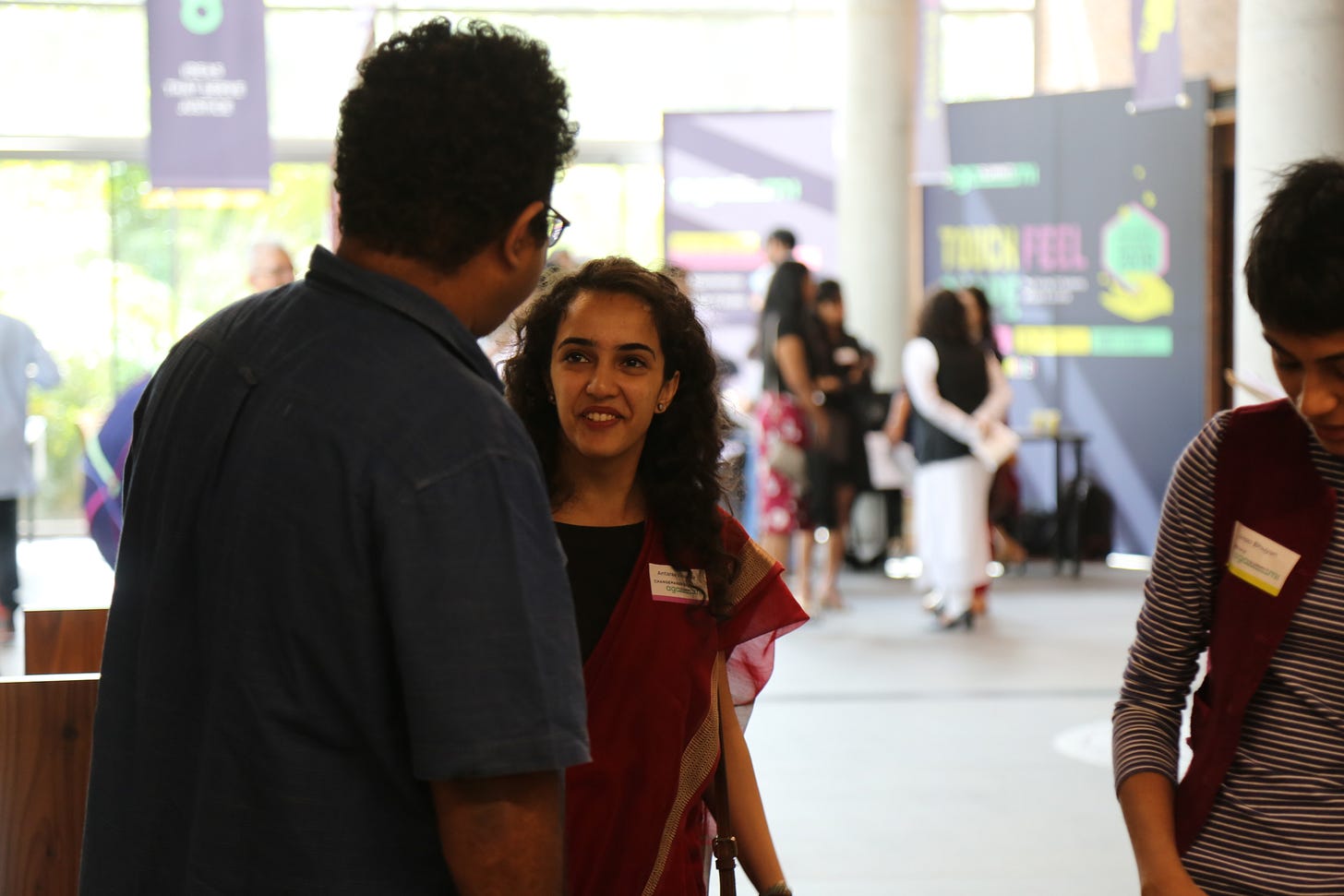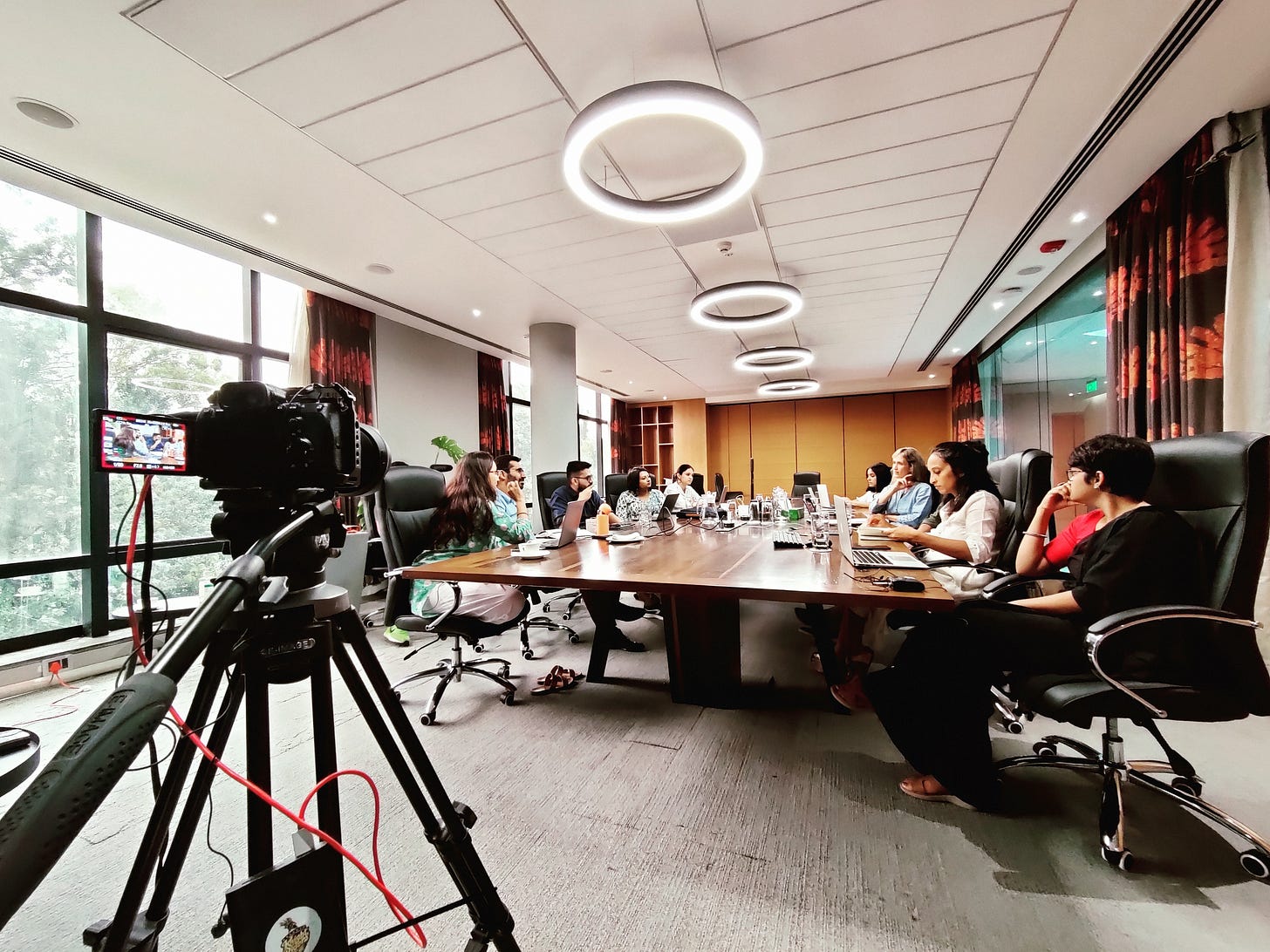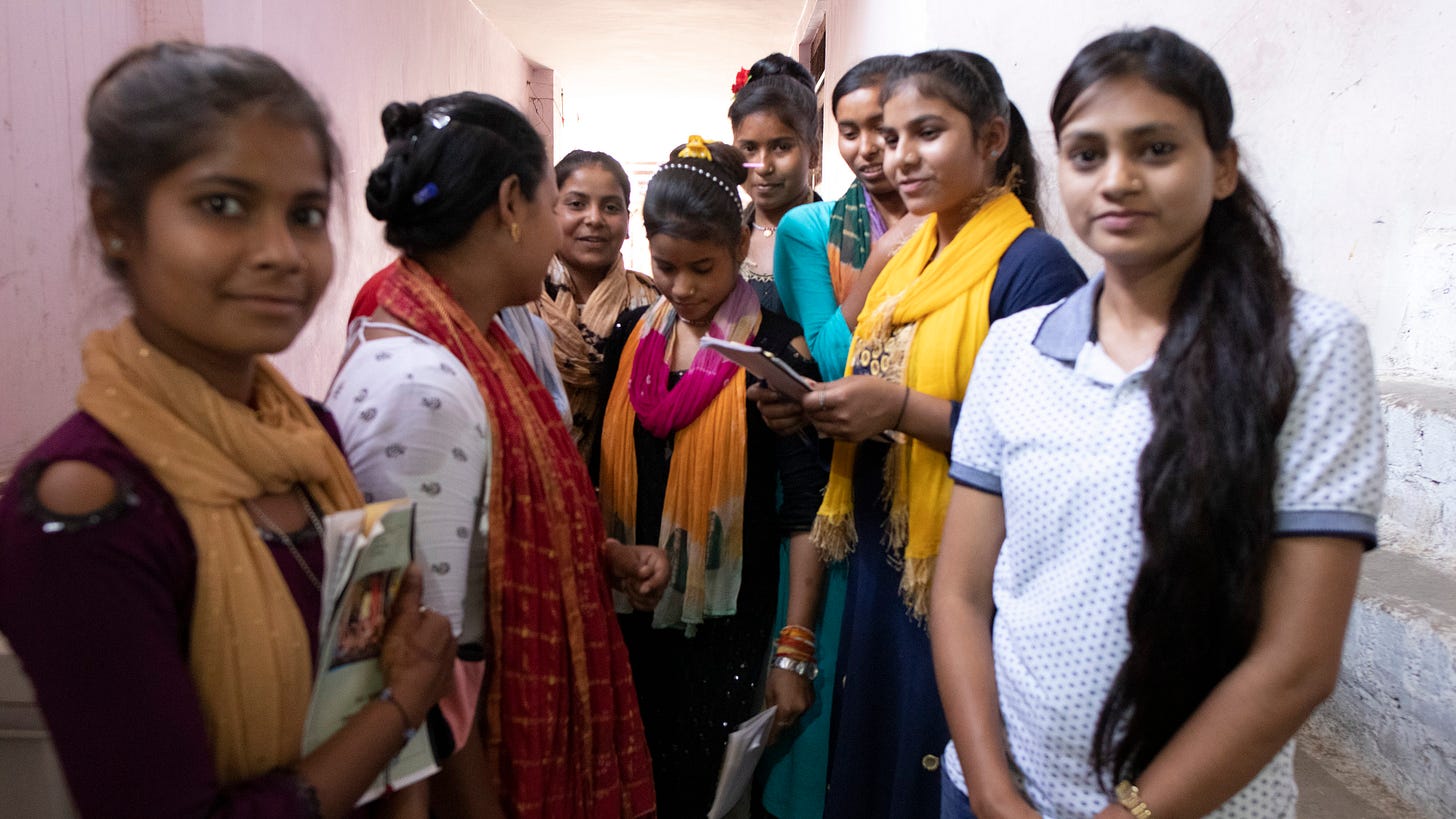How do we better Prizes?
Prizes & Challenges are often used as tools to nurture innovation across sectors. Here are our learnings from running three editions of Agami Prize.
We love running the Agami Prize.
It has been a phenomenal tool to discover, make visible, and celebrate innovative ideas transforming the field of justice. And the prize money, however small, helps the initiatives in an environment where funding is hard to come by.
The Agami Prize helped accelerate our mission - before we even won it! In the selection process itself, Agami’s tweets about Civis helped us discover fellow PLCP enthusiasts from across the country! After winning the prize, the communities support of our work had been incredible - in such a niche domain, it feels great to be supported by a whole network of innovators
Antaraa Vasudev, Founder of Civis. Civis won the Idea Prize in Agami Prize 2018
The first two editions of the Agami Prize (in 2018 and 2020) helped us build new relationships, deepen engagement, and sense ways in which we can nurture the field of law and justice. It also energises and helps all of us involved in the Prize process to learn about the field and the changemaking journey like nothing else does.
“I’m quitting all my jobs!
Every Agami Prize 2022 Nominee I have spoken to, makes me want to quit everything I’m doing and go join them on the field, in leading legal and justice innovations.”
Trina Talukdar, Member, Evaluation Council, Agami Prize
However, the fact that we had to invest time and energy in convincing people to apply raised a red flag for us. Applicants spent too much time on filling the form, particularly when the competition is tight and their work keeps them busy. We also realised that we missed discovering some impactful initiatives that could not communicate their work in written English.
So, in March 2022, we asked ourselves how do we better the process while retaining what works in a Prize? How do we design a selection process which allows the candidates to focus on their work instead of being consumed in filling long elaborate forms? How do we make the process more inclusive of people who might not have good writing skills, particularly in English? How can we create value for those that do not win? And, how do we minimise the operational cost of running a Prize and maximise our ability to channelise the funding we raised?
Here are some of our learnings from running the Agami Prize:
1. Move from an ‘application-based’ to a ‘nomination-based’ process:
The application based process we used in our first two editions, served us in creating a “buzz” for the Prize. This was particularly useful for us as a young organisation to gain a lot of information upfront and learn about the field.
However, we soon learnt how an application based process inherently favours applicants with better communication skills, particularly in English. A standard set of questions, didn’t also allow the Evaluation Council to explore nuances that might be very different for different initiatives. With some, we needed to spend much more time understanding the problem and in others the product or their personal journey. Most importantly, it didn’t really let us get a sense of the team/ the leadership behind an initiative that is so critical to the way any idea shapes.
With this in mind, we moved to a nomination-based process in this edition of the Prize. Anyone could nominate an initiative by answering just one question. We secured nominations by:
creating a 10 member ‘discovery team’ that actively researched and discovered initiatives in sectors and locations our network was not well-represented in ,
connecting one-on-one with people we felt were likely to know many impactful initiatives,
organising small convenings,
self-nominations, and
public nominations
This helped us get 648 unique, eligible nominations of which 439 were ‘new’ to us (i.e. not from previous Prize applications). And so far, we believe it has made the processes easier on candidates and more inclusive.
It was definitely helpful to have a short form upfront and then talk to a person. As an NGO, we spend a lot of time on applications that ask for a lot of writing upfront when we don't even know whether we will get through the first round. So thank you for understanding that and making the Agami Prize process simpler. Also the evaluators we talked to were absolutely a pleasure to talk to, so the discussions were thoughtful and helpful.
A nominee in their feedback form
Members of the Evaluation Council got on 30 minute learning calls with 165 of these 648 initiatives. A significant number of these conversations were in Hindi / Tamil or other regional languages. This helped us get a better sense of the people behind the initiative early on in the process. We feel this process helps us keep the candidate and their work at the centre.
Please keep the process the way it was this time. In fact one didn't get the feeling of being evaluated. It was a feeling of being heard, getting an opportunity to talk about your work with all the passion, which you sometimes cannot express on paper. Thank you.
By a nominee in their feedback form
Having said this, some nominees (and sometimes the evaluators too) found the 30 minutes learning call too short. While some initiatives shared information in advance of the call, we did not recommend it this year - something we will take into consideration next year.
We also noticed a shift internally within the team. What was earlier an “operational cost” to spend months convincing people to apply became a “learning opportunity” for the entire team. All of us channelised our energy towards discovering initiatives, reading about them, and calling people where needed. The one-on-one calls and convenings with nominators also helped us learn how other network members are seeing innovation for law and justice.
2. Multiple reviews for each initiative to mitigate bias
Each of us have our blindspots and biases. To account for it and to mitigate bias, all 648 initiatives were reviewed at least three times at the screening stage. Multiple team members researched extensively and also spoke to people where needed.
However, this year due to bandwidth and resource constraints, only one member of the Evaluation Council got on learning calls with the 165 initiatives. We are attempting to mitigate bias that might exist by bringing all members of the Evaluation Council together to discuss the initiatives and not merely go by the scores. We also see a lot of room to improve the diversity of our screening and evaluation teams from the next edition.
3. Create value for initiatives that don’t “win”
From a large pool of candidates, only a few win the Prize. The process can be more impactful if by design it offers value to other initiatives, for the time and effort they have put in. We have attempted to do this by publishing the Agamiscape in both 2018 and 2020 that maps the work of all organisations, trends and patterns in the field and share it with our entire network. We hope this also allows every initiative to see the larger field and be able to situate themselves in it. This year, we are doubling down on our intent to make visible and connect initiatives to prospective allies and opportunities through Agamiscape - an open platform to explore justice innovation in India.
Additionally, we also seek to engage these initiatives in our collaborative initiatives and other efforts.
4. Select multiple winners
There is no one “type” of innovation that will transform the field of law and justice in India. The Prize process is an opportunity for us to show a spectrum of innovation - ranging from mature stage initiatives to early stage initiatives; from unregistered entities to for-profit or not-for-profit entities; from community-led and network-led innovation to technology-led innovation. For this, we made a conscious choice to select four winners instead of one. This also helps us support more initiatives and creates a higher probability of an upside for candidates.
5. Create categories for young initiatives
We believe that young initiatives, particularly those led by young people, are going to be the source of change for the field of law and justice. While usually it is the mature, well established organisations that are discovered and celebrated through prizes, we designed a separate category for young initiatives - which has been incredibly useful in making visible fresh ideas which carry a ton of potential. For instance, the Idea Prize money is among the early funding that both Zenith and Criminal Accountability and Police Project, both winners of Idea Prize in 2020, received. This was made possible by the Jayasimha Foundation, in memory of Late Justice R Jayasimha Babu.
6. Nurturing a community that cares about Justice Innovation
One of our primary motivations of doing the Prize is to also build a community of people who care about innovation for the justice field. Harnessing a team with a strong interest and learning mindset at every stage is one way to do it.
We’ve been incredibly lucky with our evaluators in all three Prize editions so far. While Ritvik Lukose, Co-Founder & CEO, Vahura and Trina Talukar, Co-Founder Bolti Bandh and Kranti, have been part of the evaluation team from 2018, Namit Oberoy, founder of Indian Legal Tech and Maria Clara Pinheiro, Former Regional Leader for South Asia, Ashoka, joined us this year. Having a similar panel of evaluators, particularly at the early stages, is helping us deepen our conversations on how we are all seeing innovation in law and justice and also helping us in nurturing a community of people for justice innovation.
We also worked with nearly 20 interns this year. Some were a part of the discovery team and many supported the screening teams and evaluation council with research and operations. This provided us an opportunity to harness talent and attract more people to be excited about this field. Below is a testimonial by one of our interns who was a core part of the screening process 🙃
I was mind blown by the scope of innovation in justice and law (something I hadn't really considered before). The internship really changed how I look at problems in the legal field now. Also learnt that following up works wonders. Most importantly, I overcame my hesitation in making calls and talking to strangers and learnt the nuances of professional communication.
By an intern on her learnings from being part of the Prize team
7. Leverage no-code, affordable tools to manage Prize operations:
In the last two editions, we researched extensively on prize management platforms and used a fairly expensive proprietary platform in 2020. While it was customised specifically for application based processes and is one of the best products in the market, it didn’t meet all our customisation requirements. It was also expensive for us to use. We wanted a budget friendly, low entry barrier, no registration process to source nominations this year. We found our answers in Glide, a no-code, affordable tool that allows anyone to build websites and applications from spreadsheets. So far it has served every requirement we have had and has facilitated the process to become nearly frictionless.
These have been our learnings so far. We are also trying to be conscious of the other areas we need to improve upon and would love to hear from you if you have any learnings or recommendations for us.








